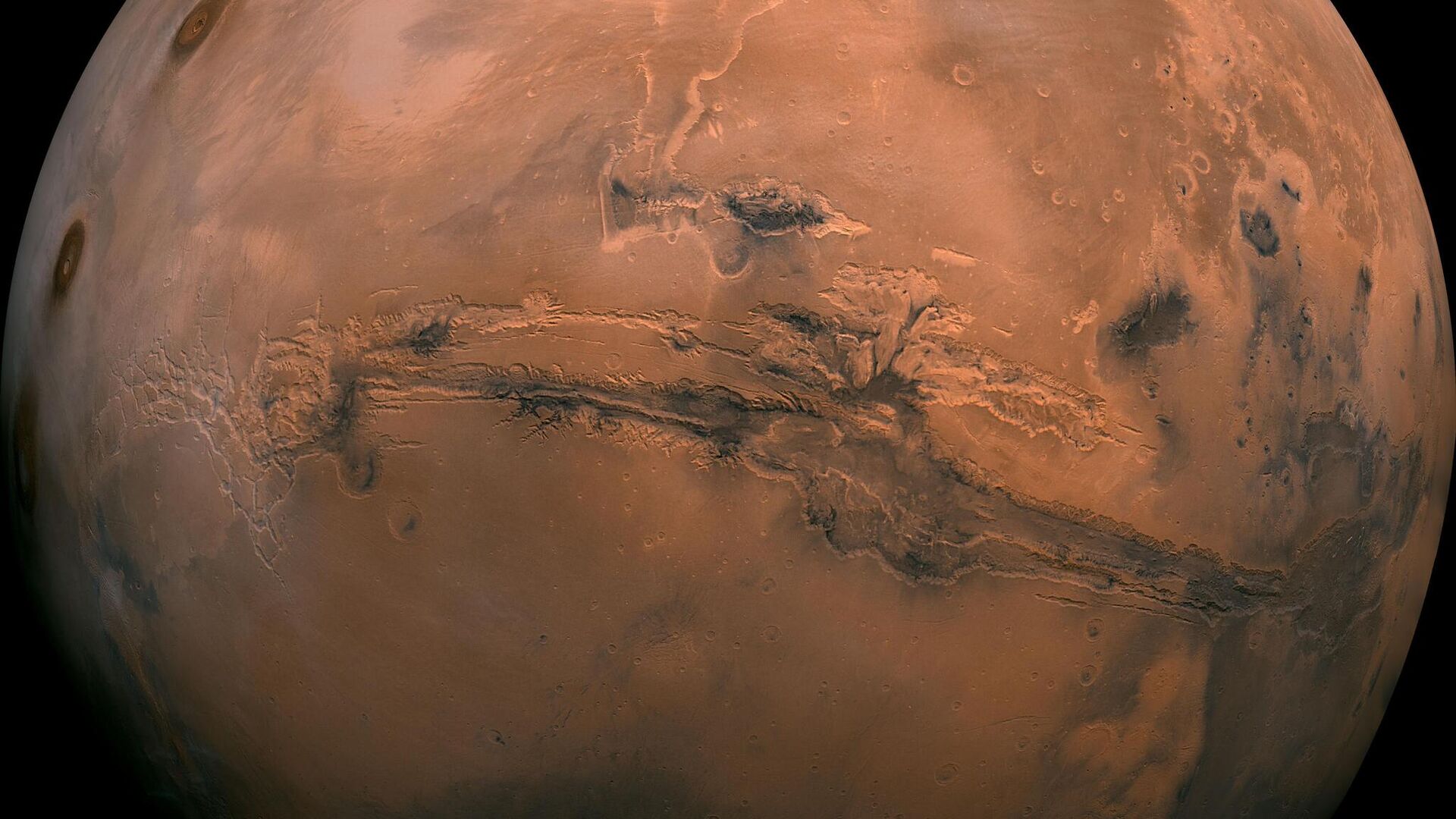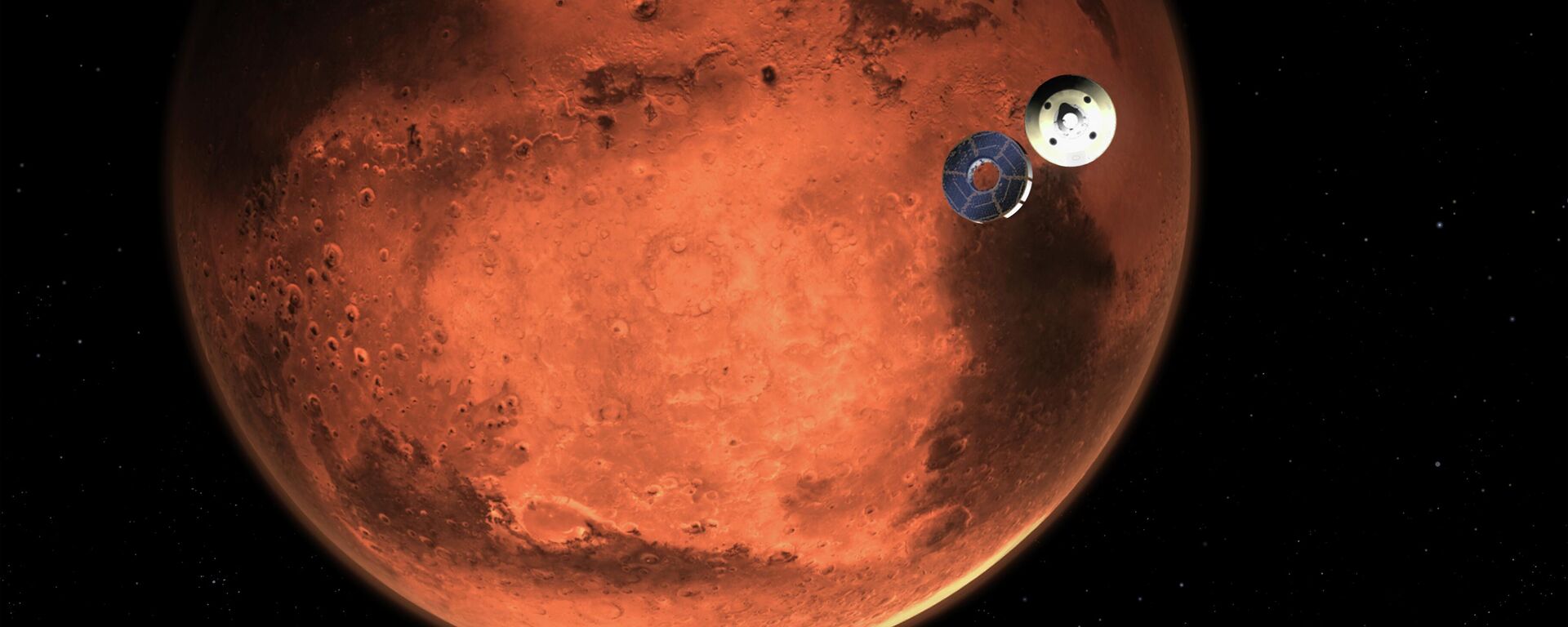https://sputniknews.in/20231114/scientists-claim-to-produce-oxygen-on-mars-with-help-of-ai-robot--5397690.html
Scientists Will Produce Oxygen on Mars With Help of AI-Robot
Scientists Will Produce Oxygen on Mars With Help of AI-Robot
Sputnik India
scientists have announced the development of an AI-based robot chemist that can synthesise oxygen from a Mars meteorite compound.
2023-11-14T15:20+0530
2023-11-14T15:20+0530
2023-11-16T13:40+0530
science & tech
science & tech
mars
china
robotics
ai robots
artificial intelligence (ai)
space satellite
space industry
space exploration
https://cdn1.img.sputniknews.in/img/07e7/03/0e/1164374_0:448:2049:1600_1920x0_80_0_0_d796ea6e889ed87aeb1cf367389103ec.jpg
In a breakthrough, scientists announced the development of an AI-based robot chemist that can synthesise oxygen from the Mars meteorite compound.Oxygen not just plays a pivotal role in crewed missions by supporting life but is also used as rocket fuel.Scientists claimed that the AI robot chemist has experimented to produce some of those water-splitting catalysts, these tests were conducted with samples found on the red planet without human intervention. The robot is equipped with a laser to scan ore on Mars."It would have taken a human scientist something like 2,000 years to find that best catalyst using conventional trial-and-error techniques," Jun Jiang, co-senior author of the study and a scientist at the University of Science and Technology of China in Hefei, told Space.com.The scientist said that these findings could be very helpful in science, however, at the same time, AI needs the guidance of human scientists.However, scientists are not sure how the AI robot will perform in Mars's atmosphere as the red planet's atmospheric composition, including air density, humidity, gravity and so on, differs from those on Earth.
https://sputniknews.in/20231110/all-mars-communication-to-be-lost-as-planet-falls-dark-5338737.html
mars
china
Sputnik India
feedback.hindi@sputniknews.com
+74956456601
MIA „Rossiya Segodnya“
2023
Deexa Khanduri
https://cdn1.img.sputniknews.in/img/07e6/0c/13/138923_52:0:533:481_100x100_80_0_0_cadf23d341691fc65ff2b22fd1afe584.jpg
Deexa Khanduri
https://cdn1.img.sputniknews.in/img/07e6/0c/13/138923_52:0:533:481_100x100_80_0_0_cadf23d341691fc65ff2b22fd1afe584.jpg
News
en_IN
Sputnik India
feedback.hindi@sputniknews.com
+74956456601
MIA „Rossiya Segodnya“
Sputnik India
feedback.hindi@sputniknews.com
+74956456601
MIA „Rossiya Segodnya“
Deexa Khanduri
https://cdn1.img.sputniknews.in/img/07e6/0c/13/138923_52:0:533:481_100x100_80_0_0_cadf23d341691fc65ff2b22fd1afe584.jpg
life on mars, oxygen in mars, oxygen from earth, ai-based robot chemist, mars meteorite compound, oxygen as fuel, ai based robot, is there oxygen in mars?, oxgen in space,
life on mars, oxygen in mars, oxygen from earth, ai-based robot chemist, mars meteorite compound, oxygen as fuel, ai based robot, is there oxygen in mars?, oxgen in space,
Scientists Will Produce Oxygen on Mars With Help of AI-Robot
15:20 14.11.2023 (Updated: 13:40 16.11.2023) Deexa Khanduri
Sputnik correspondent
If the experiment proves successful on Mars, it would be a breakthrough for future missions to the planet, as it would minimise resources and reduce the need to transport oxygen from Earth.
In a breakthrough, scientists announced the development of an AI-based robot chemist that can synthesise oxygen from the Mars meteorite compound.
Oxygen not just plays a pivotal role in
crewed missions by supporting life but is also used as rocket fuel.
Scientists claimed that the AI robot chemist has experimented to produce some of those water-splitting catalysts, these tests were conducted with samples found on the red planet without human intervention. The robot is equipped with a laser to scan ore on Mars.
"The AI chemist selected, synthesised and tested 243 of those different molecules. The best catalyst the robot found could split water at minus 34.6 degrees F (minus 37 degrees C), the kind of cold temperature found on none other than Mars," researchers noted.
"It would have taken a human scientist something like 2,000 years to find that best catalyst using conventional trial-and-error techniques," Jun Jiang, co-senior author of the study and a scientist at
the University of Science and Technology of China in Hefei, told Space.com.
The scientist said that these findings could be very helpful in science, however, at the same time, AI needs the guidance of human scientists.
However, scientists are not sure how the
AI robot will perform in Mars's atmosphere as the red planet's atmospheric composition, including air density, humidity, gravity and so on, differs from those on Earth.



